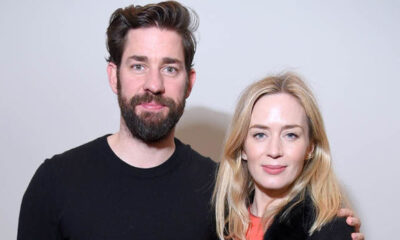All round
TikTok’s Catfish Problem: The Illusion of Authenticity
A Disturbing Revelation on TikTok Exposes the Prevalence of Catfishing
In the vast realm of social media, it’s not uncommon to come across individuals who portray themselves as someone they’re not.
But what if the deception goes beyond mere filters and carefully curated posts?
What if the person you admire on Instagram is, in fact, a digital creation?
This is the unsettling reality that has recently come to light on TikTok.
Trending:
One particular video circulating on the platform sheds light on the deceptive practices of a content creator who goes by the name Coconut Kitty.
Diana Deetz, as she is known outside the online world, has amassed a significant following by posting photos of herself in revealing outfits.
However, there’s a catch – she digitally alters her face to appear younger, essentially creating a virtual persona.
This revelation has sparked outrage and raised questions about the authenticity of social media influencers.
At first glance, Deetz’s content seems like standard fare for Instagram, catering to an audience that craves PG-13 material.
She flaunts her physique in bikinis and lingerie, enticing followers with her seemingly flawless appearance.
But beneath the surface lies a web of deceit.
In her bio, Deetz provides a link to her website, which redirects users to her OnlyFans (OF) account.
For a monthly subscription fee of $10.99, subscribers gain access to explicit content featuring Deetz in her “birthday suit.”
Astonishingly, she has managed to amass nearly 12,000 subscribers, earning a staggering $120,000 per month.
The allure of Deetz’s content lies in the illusion of authenticity.
Subscribers are led to believe that they are engaging with a real person, albeit one with a digitally enhanced appearance.
This raises questions about the moral implications of such practices and the impact they have on society’s perception of beauty and self-worth.
It’s important to note that Deetz is not an isolated case.
Many social media platforms, including Instagram and Snapchat, provide users with sophisticated tools to alter their identities.
Face-altering apps like Facetune and FaceApp further contribute to the blurring of reality and fantasy.
These tech companies capitalize on our desire to present an idealized version of ourselves, while inadvertently perpetuating a culture of deception.
The consequences of this catfishing epidemic extend beyond the confines of the online world.
The influence of these altered personas seeps into our daily lives, distorting our perceptions of beauty and self-image.
By succumbing to the allure of these digital illusions, we unwittingly contribute to the financial success of those who exploit our insecurities.
It’s time to break free from this cycle of deception.
We must recognize the detrimental effects of investing our time and money in these fabricated personas.
Instead, let us focus on cultivating genuine connections and embracing our own unique identities.
It’s time to reclaim our authenticity and reject the false narratives propagated by social media influencers.
In conclusion, the rise of catfishing on TikTok serves as a stark reminder of the dangers lurking beneath the surface of our digital lives.
We must remain vigilant and discerning, constantly questioning the authenticity of the content we consume.
By doing so, we can protect ourselves from falling victim to the manipulative tactics employed by those who seek to profit from our insecurities.
Let us strive for a world where true authenticity reigns supreme, both online and offline.
Popular Posts:
- Queen’s damning reply to Prince Harry’s ‘what Meghan wants, Meghan gets’ outburst
- Here’s Why Meghan Markle Cannot File Harry Divorce In US
- Meghan Markle ‘escorted out of Prince Charles’ garden party’ in unearthed video
- Here’s Why Meghan Markle Cannot File Harry Divorce In US
- Prince Harry ‘kept asking for more money’ and Prince Charles got ‘fed up’
- Prince Charles ‘deliberately’ left Meghan out of Archie’s birthday message
- Prince Harry and Meghan ‘blamed staff when they didn’t get their way’
- Prince Harry has been ‘brainwashed’, says biographer
- Meghan Markle blogged about Kate’s wedding before claiming she ‘didn’t know much about royals’
- REVENGE: Beatrice’s pregnancy announcement total dig at Meghan Markle
- Damage is done: Prince Harry warned rift with Prince Charles is widening beyond repair
- Meghan Markle Oprah interview claims debunked by own blog post
- Prince Harry faces Backlash for podcast interview, Duke ‘making too much noise’
- Queen and Charles deeply upset with Harry’s rants
- Harry and Meghan are ‘trolling the world’ with hidden photos Archie, says their biographer
- Prince Harry Demands wife Meghan Markle Be Part Of Princess Diana’s 60th Birthday Tribute Or He Won’t Show
- Harry and Meghan are ‘trolling the world’ with hidden photos Archie, says their biographer
- Meghan Markle’s Plastic Surgery
- Meghan and Harry CAN’T do another bombshell interview – ‘Can only do one’
- How Kate Middleton earned the Queen’s respect
- William and Kate prove they are NOT ‘trapped’ despite Harry claims
- Kate Middleton ‘won’t be walked over by Meghan Markle,’ says Jenny Eclair
- Meghan ‘wasn’t too keen’ on living in smaller place than Kate and William after royal wedding
- Meghan Markle was a ‘failure’ in Hollywood, biographer reveals
- Meghan and Harry are trying to start ‘alternate woke Royal Family,’ Expert says



















































